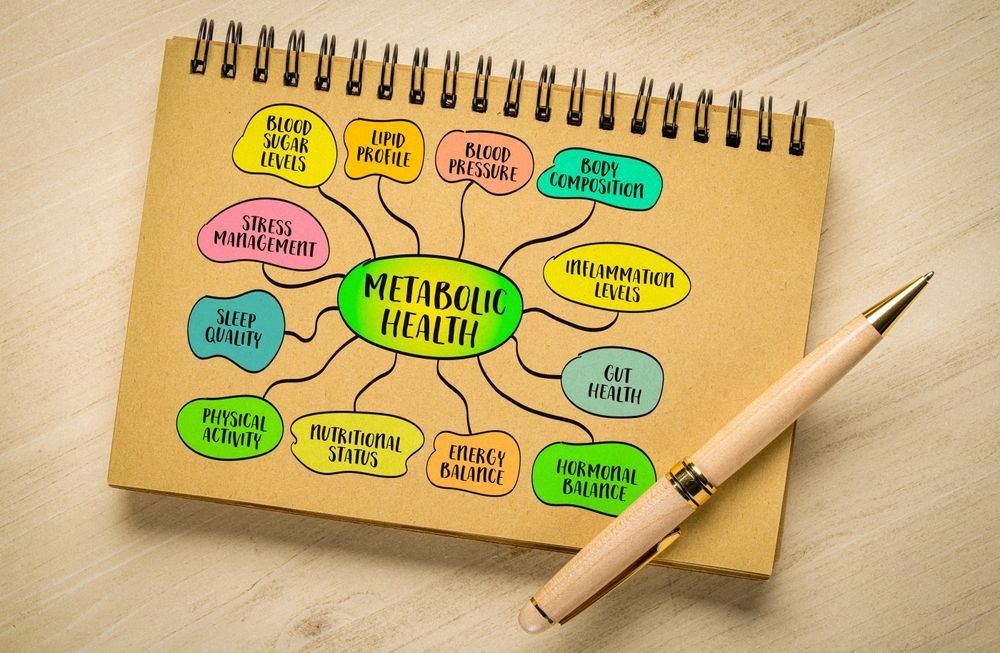How IV Therapy Supports Mental Health and Reduces Anxiety

As more people seek alternative methods to enhance their well-being, intravenous (IV) therapy has emerged as a promising option. Beyond its physical health benefits, IV therapy also plays a crucial role in supporting mental health and alleviating anxiety. In this article, we will explore what IV therapy is and how it functions, and dive into its connection with mental health and anxiety.
Understanding IV Therapy
IV therapy involves the administration of fluids, vitamins, and minerals directly into the bloodstream through a vein. This method allows for rapid delivery of essential nutrients, bypassing the digestive system, which can sometimes hinder absorption. The treatment has gained popularity among various demographics, from athletes looking for recovery solutions to individuals seeking to improve their overall health.
The process typically requires a healthcare professional to insert an IV line into a patient's arm. The treatment can take anywhere from 30 to 90 minutes, depending on the specific blend of nutrients and the purpose of the therapy. This straightforward approach provides a wide array of benefits and is becoming a trusted method for both physical and mental rejuvenation.
The Science Behind IV Therapy
The science of IV therapy lies in its ability to deliver nutrients in a highly bioavailable form. This method ensures that essential vitamins and minerals reach the bloodstream quickly and efficiently. Studies have shown that many people have nutrient deficiencies that can adversely affect their mental health. By administering these nutrients through IV therapy, practitioners can correct imbalances and improve overall wellness.
Moreover, the hydration aspect of IV therapy cannot be understated. Proper hydration is essential for optimal brain function, energy levels, and mood regulation. Individuals who struggle with anxiety often experience increased dehydration due to stress and other psychosomatic factors. IV therapy can help restore hydration swiftly, aiding the brain's ability to respond to stressors effectively.
Key Components of IV Therapy
IV therapy can be tailored to include a variety of components, depending on the individual’s needs. Commonly used ingredients include:
- Vitamin C – Known for its immune-boosting properties and role in collagen synthesis.
- B Vitamins – Essential for energy production and mental health.
- Magnesium – Crucial for brain function and helps to reduce stress levels.
- Zinc – Supports cognitive function and improves mood stability.
These components work synergistically to enhance mental clarity, stabilize mood, and promote emotional well-being, making IV therapy a potent option for those struggling with mental health issues.
The Connection Between IV Therapy and Mental Health
Research has established a close link between nutrition and mental health. Deficiencies in specific nutrients can lead to conditions such as depression and anxiety. IV therapy offers a direct approach to replenish these nutrients, enhancing mental resilience.
By administering vital vitamins and minerals directly into the bloodstream, IV therapy can address deficiencies more quickly than oral supplements. This immediate result is particularly beneficial for individuals experiencing acute anxiety, where every moment counts in gaining a sense of control.
The Role of Nutrients in Mental Health
Nutrients play a powerful role in brain chemistry, which affects mood and emotional regulation. For example, B vitamins are crucial for producing neurotransmitters like serotonin and dopamine, both of which are integral to feelings of happiness and well-being. A deficiency in these vitamins may contribute to mood disorders.
Furthermore, minerals such as magnesium have been shown to have calming effects on the nervous system. Adequate magnesium levels can help mitigate the physiological and psychological impacts of stress, making it a vital mineral for anyone dealing with anxiety.
How IV Therapy Enhances Nutrient Absorption
One of the most significant advantages of IV therapy is its ability to bypass the gastrointestinal tract. Many individuals have impaired digestive systems due to various health conditions, which can limit nutrient absorption. IV therapy ensures that more of the beneficial compounds reach the bloodstream, optimizing nutrient utilization in the brain and body.
This direct approach aids in rapidly replenishing nutrient stores, resulting in quicker improvements in mental clarity, mood stability, and energy levels. This can be especially empowering for individuals who feel trapped by their anxiety or mental health conditions.
IV Therapy as a Solution for Anxiety
Anxiety can have a profound impact on one’s physical state. Symptoms often manifest through increased heart rate, shallow breathing, and muscle tension, which can create a vicious cycle of anxiety and physical discomfort. IV therapy provides a holistic approach to countering these effects.
By offering targeted nutrient support, IV therapy can help manage symptoms and promote relaxation. Many individuals report feeling a significant reduction in anxiety levels after their IV sessions, allowing them to engage more fully in their daily lives.
The Impact of Anxiety on the Body
Anxiety does not merely affect mental health; its effects can ripple through the entire body. Chronic stress and anxiety can lead to increased inflammation, hormonal imbalances, and even chronic diseases. Understanding these implications emphasizes the importance of treatment approaches like IV therapy, which aim to restore balance.
When the body is well-nourished, it stands a better chance of coping with stress and anxiety. IV therapy helps revitalize the body’s systems, allowing individuals to combat anxiety more effectively.
How IV Therapy Can Alleviate Anxiety Symptoms
Many people who undergo IV therapy report immediate benefits following their sessions. These benefits may include enhanced mood, reduced feelings of stress, and improved focus. By replenishing essential nutrients, IV therapy acts as a supportive foundation for mental health treatment.
Additionally, the experience of receiving IV therapy can itself be calming. The process typically occurs in a soothing environment, allowing individuals time to relax and focus on self-care—a key component of managing anxiety.
The Process of Undergoing IV Therapy
Before opting for IV therapy, it is essential to understand the process involved. Preparing adequately can make the experience smoother and more beneficial from the start.
Preparing for Your First IV Therapy Session
Preparation for your first session involves a few key steps. First, consult with a healthcare professional to discuss your specific needs and any potential risks. It’s beneficial to be clear about your mental health history and any symptoms you might have.
Additionally, ensure you arrive well-hydrated and consider eating a light meal beforehand. This will help your body adjust to the infusion and enhance the overall experience.
What to Expect During and After IV Therapy
During the session, you can expect to relax comfortably while the infusion takes place. Many clinics provide amenities such as soothing music or even headphones for entertainment. Throughout the infusion, the healthcare professional will monitor your comfort levels.
After therapy, individuals often feel an uplifted mood and enhanced energy levels. It’s recommended to continue drinking plenty of fluids to sustain hydration. Some may experience mild fatigue as the body absorbs the nutrients, but this usually resolves quickly.
Potential Risks and Side Effects of IV Therapy
While IV therapy is generally safe, it's important to acknowledge that there can be potential risks, as with any medical treatment. Awareness of these risks can help individuals make informed decisions about their health.
Understanding the Potential Risks
Potential risks associated with IV therapy include infection at the injection site, phlebitis (inflammation of the vein), and allergic reactions to the components of the IV solution. Working with a qualified healthcare professional minimizes these risks significantly.
Therefore, ensuring that the facility is reputable and the staff is experienced is crucial for a positive experience.
How to Mitigate Side Effects
To mitigate any side effects, communicate openly with your healthcare provider. They can tailor the IV solution to your specific needs and monitor for any adverse reactions. Additionally, drinking plenty of water and refraining from strenuous activities post-session can lessen discomfort.
Ultimately, many individuals find that the benefits of IV therapy, particularly for mental health and anxiety reduction, far outweigh the potential risks, making it a valuable option to consider in a holistic approach to mental wellness.










